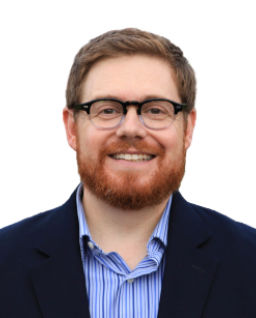Release time: 2020-04-24 08:49
Trauma-Related Symptoms Among COVID-19 Medical Professionals
Medical response workers are experiencing increasing mental health needs.
The world is on edge. The novel coronavirus, known as COVID-19, has swept across the globe, causing communities to take drastic measures to protect themselves. Every day people are stocking up on their household necessities as they continue to social distance themselves. Others are worrying about their jobs, and whether or not they will retain an income. Students are learning from home, a place that has become a refuge and a trap. Fear of catching the coronavirus is real and present, and therefore intruding every part of our lives. Yet, what about the people on the front lines, fighting every day to save the lives of those infected? How are they doing? A very recent study funded by the Science and Technology Program of Guangzhou, China surveyed these medical workers on their mental health.
Wuhan, Hubei, China was the first region to experience COVID-19 in December 2019. As the virus spread at a rapid rate, various Chinese researchers came together to study the mental health effects this now pandemic was having on medical professionals. This study is still conducting research as China is slowly beginning to recover from the outbreak and other nations have begun bracing for impact. From February 9-15 online questionnaires were completed in China via social networking software by 5,393 respondents. The survey assessed symptoms of anxiety, depression, and insomnia in medical workers only. The survey also questioned the individuals’ level of social support.
What makes medical professionals a unique target for trauma-related symptoms due to the coronavirus outbreak? The researchers explain:
“Medical workers are the majority fighting against the epidemic [now pandemic], they undoubtedly bear the greatest responsibility and stress, including the responsibility for diagnosis and treatment, a high risk of infection and inadequate protection from contamination, overwork, worrying about their families, and exhaustion.”
The final results from the first rounds of research found that 5.9% of respondents had anxiety symptoms, 28.0% had depressive symptoms, and 34.4% had insomnia. This obviously shows the need to address more intentional mental health care for those facing COVID-19 head-on. In addition, individuals showed lower scores of anxiety, depression, and insomnia when they reported higher scores of social support. With the growing need for mental health care for these professionals, special care should be shown toward increasing social support systems, such as community development, friendships, and the family unit. However, in this time of social distancing, creative solutions are needed.
Knowing this information that was collected from a small group of medical professionals in China, other countries and communities must take these examples and prepare to mitigate the risks for their own medical professionals. Now that the virus has arrived in the United States, government officials, community leaders, and other groups can take the lead to advocate for mental-health support for these clinicians and nurses. Along with this, leaders should take the necessary actions to ensure that medical workers are well rested with adequate amounts of social support, even during these times of social distancing. These are the people we can count on to save our lives in this time of uncertainty. Individuals waiting out the crisis can help by continuing to stay home, donating supplies, and even donating blood if they are able.
Medical professionals have the unique stress of facing COVID-19 directly. Yet, each day they work to save people’s lives. Being sensitive to their needs and stepping in to help will make an enormous impact on their mental health. It will hopefully provide a psychological intervention that can increase their perseverance. We are all in this together, even if we are at least 6 feet apart.
Grace Howell is a grad student at Wheaton College in the Humanitarian and Disaster Leadership program. She is currently studying various humanitarian crises, disaster risk management and relief, and best practices in response to her vocational calling.

Jamie Aten, Ph.D. is founder and executive director of the Humanitarian Disaster Institute at Wheaton College.
Online: Humanitarian Disaster Institute, Twitter, LinkedIn
psychology today